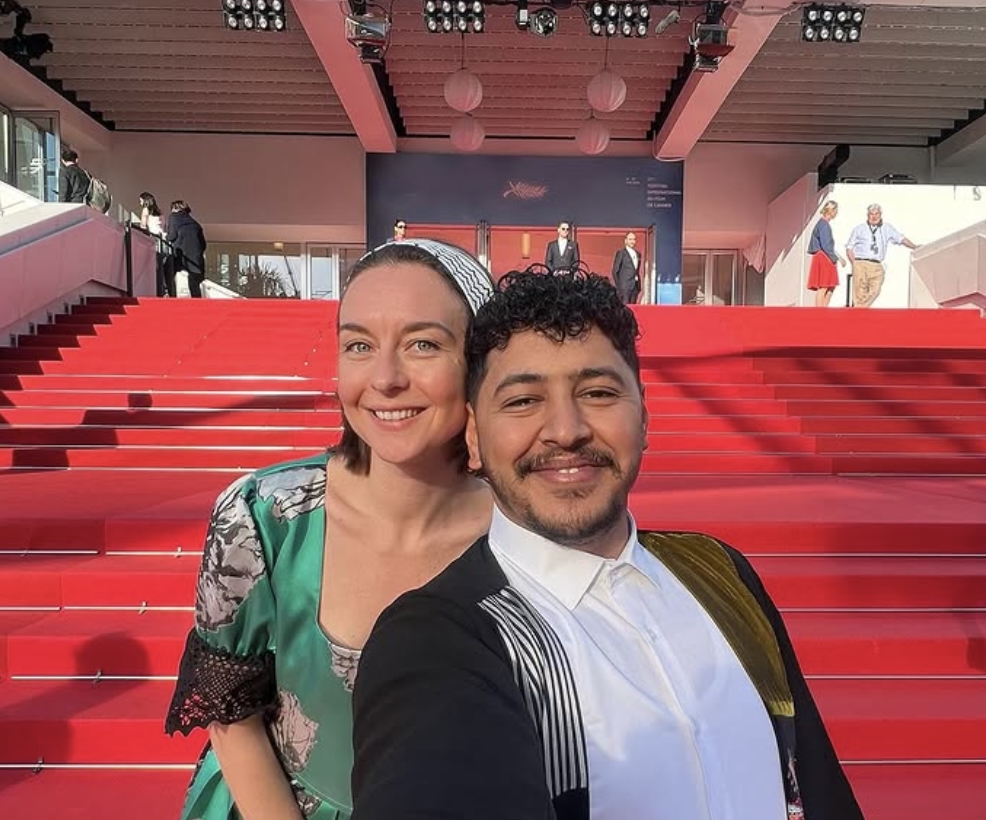FACT talks to the Palestine Comedy Club ahead of their appearance at SXSW London.
I’m on a video call with the creators of the new film Palestine Comedy Club, but the signal keeps cutting out. I catch glimpses of palm trees, bright blue skies, and the hectic sounds of Middle Eastern traffic. “Alaa, where are you?” I ask. “I’m in Nablus, Palestine,” he replies. Nablus, a city in the West Bank, has recently been affected by Israeli raids. For much of the world, it’s a place in the news. For them, it’s simply home. FACT spoke to the team about the film and the importance of sharing a new Palestinian perspective.
In 2019, Palestine Comedy Club was formed. The comedy production company was established in both the United Kingdom and Palestine, and it remains the only project of its kind in these regions. The film Palestine Comedy Club follows six Palestinian comedians as they tour their homeland. The team includes comedian and writer Alaa Shehada, filmmaker and photographer Alaa Aliabdallah, and producer Charlotte Knowles. The film has already been screened at major film festivals, from the Cannes Film Festival to the Raindance Film Festival. Now, it’s coming to SXSW London, where it will be screened on 6 June.
Comedy and conflict
Can a joke change the world? Shehada believes so. After graduating from The Freedom Theatre in the Jenin refugee camp, he founded Palestine Comedy Club. Starting with workshops in the West Bank, the club eventually became a transnational movement. As the club began to take flight, that’s when Aliabdallah and Knowles shot the film.
Shehada explains: “Comedy is powerful. It’s a way to reach people’s hearts, and when you reach their hearts, you can change their minds. Comedy humanises us. We’re not just fighting under the occupation – within this tragedy, we find humour and keep moving. It’s important for the international community to see that we also have comedians and artists. That’s the beauty of comedy – it allows one to receive it and have a discussion instead of just having one hard, fixed opinion.”
“People are willing to hear our perspective, which is new for us. Usually, there’s one image of Palestinians, based on the news. Comedy comes and breaks that. People are surprised that they’re able to see Palestinians in a different way – comedy changes those typical portrayals.”
Aliabdallah adds: “We’ve seen how much people love the film. The title itself is strange for them because they know about the occupation, but our comedy is new to them. They’re able to see the film, and we can see their reaction. They cry and laugh, and we can see that they’re starting to have new views about Palestine.”
Representation and responsibility
In the Western world, negative stereotypes of Arabs and Muslims are prevalent in the media, film, and TV. Not only do they contribute to the dehumanisation of these groups, but also to anti-Muslim sentiments. In the United Kingdom, Tell MAMA found that anti-Muslim hate surged to record levels in 2024, following the Southport murders and the Israel-Gaza war. Shehada hopes Palestine Comedy Club challenges these stereotypes. He sighs: “There are many stereotypes about us – that we’re sad victims or angry Arabs”.
Our interview falls on the day of the 77th anniversary of the Nakba, which translates to “catastrophe” from Arabic and is one of the most important days in Palestinian history. It refers to the displacement of Palestinians during the 1948 Arab-Israeli War. In light of this, I ask if they feel they have a responsibility when it comes to Palestinian representation.
Shehada answers: “It’s a responsibility, but it’s my desire as an artist to be honest, open, and communicative. I take responsibility for the punch lines and the story – including the image of our community. There’s pressure because we’re delivering a message to those who haven’t been to Palestine. It’s like they’re visiting Palestine. We’re lucky to have this chance, not everyone has that.”

While Knowles is from the United Kingdom, she is an advocate for diversity on screen. She adds: “From an outsider’s perspective, I focus on how humour is a form of resistance, empowerment and unity. People have different assumptions about the show. There’s a responsibility in how it’s presented. My responsibility is to listen and to ensure an accurate representation is put forward.” For now, the team can’t wait to get to London. Aliabdallah explains: “All eyes will be on the SXSW London”. Running from 2 to 7 June, the speakers have already included former Prime Ministers Tony Blair and David Cameron, alongside actors, artists, musicians, filmmakers – and, of course, The Palestine Comedy Club. Get ready to live, learn and, most importantly, laugh
GO: Visit www.palestinecomedyclub.com for more information.


